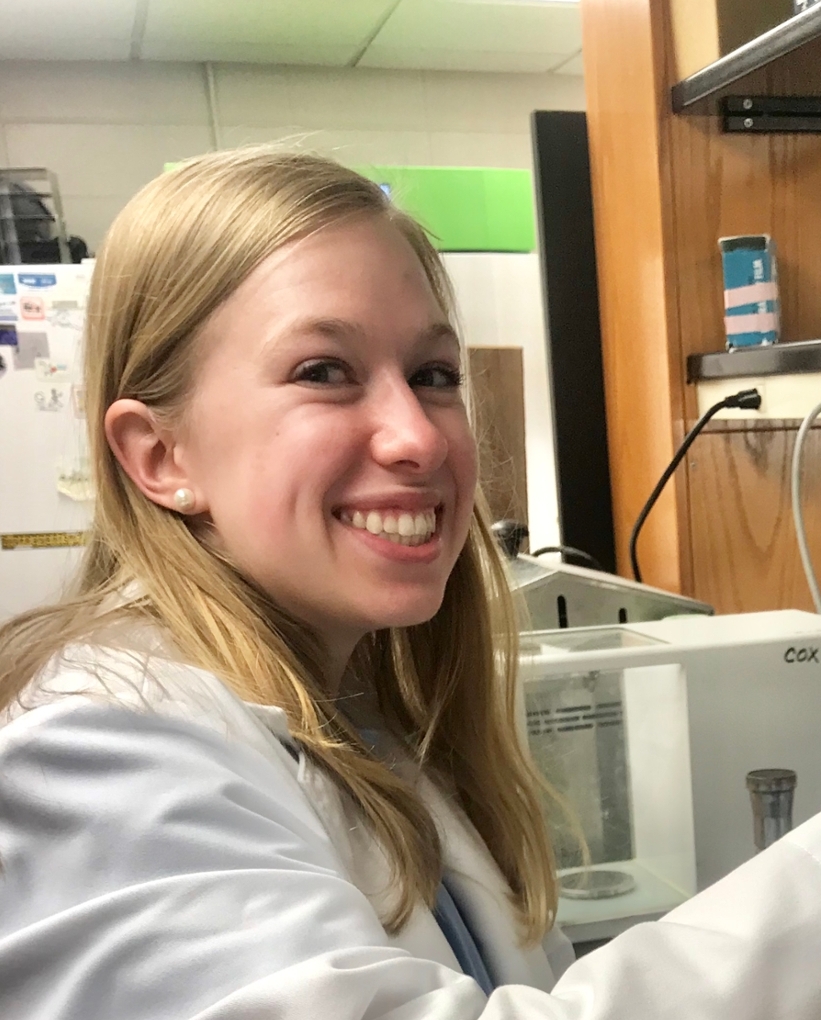COSAM Majors
Why Should You Choose COSAM?
The College of Sciences and Mathematics (COSAM) has a history of student achievement. The college offers 26 majors, and a proven path of preparing students for acceptance into medical school. COSAM has five unique departments including Biological Sciences, Chemistry and Biochemistry, Geosciences, Mathematics and Statistics, and Physics. COSAM students have won an array of impressive awards and continue their education at prestigious universities around the world.
10%
of the total undergraduates at Auburn University are a COSAM student.
30%
COSAM students are consistently accepted into professional schools at a rate that is more than 30 percentage points higher than the national average.
9%
of Auburn University graduates are COSAM students.
55%
of COSAM students graduate with honors.
Choosing a Major
In COSAM, designation of your “major” may be confusing at first because of differing categories, options, and concentrations within majors. The following points should help clear up the confusion:
- If you want to go into a human health profession, you will need to choose your “concentration” first.
- The concentrations are Pre-Medicine; Pre-Dentistry; Pre-Optometry; Pre-Physical Therapy; Physician Assistant; and Pre-Pharmacy.
- You do not declare your major until you have finished 60 hours of credit.
- All of the pre-health concentrations except Pre-Pharmacy have five majors from which to choose: (1) Biomedical Sciences; (2) Chemistry; (3)Microbiology; (4) Physics; and (5) Organismal Biology.
- The Pre-Pharmacy concentration has two options you can consider:
-
(1)The three year program that constitutes the exact pre-requisites for the Harrison School of Pharmacy (HSOP) here at Auburn University;
-
(2)The four year Biomedical Science degree with a Pre-Pharmacy concentration. This curriculum includes all 89 hours of the pre-requisites as well as 31 additional hours to earn the Biomedical Science degree.
-
- The Pre-Veterinary concentration has three options to consider in COSAM:
-
- The three year program that constitutes the exact pre-requisites for the Auburn University College of Veterinary Medicine;
- The four year degree program for the Organismal Biology major in the Veterinary Medicine concentration;
- The four year degree program for the Microbiology major in the Veterinary Medicine concentration.
About the Department of Biological Sciences:
The Department of Biological Sciences offers a vast array of courses and hands-on learning experiences.
Degrees:
- NEW: BS - Genetics
- BS - Marine Biology
- BS - Microbial, Cellular and Molecular Biology: Cell and Molecular Biology Option
- BS - Microbial, Cellular and Molecular Biology: Microbiology Option
- BS - Organismal Biology: Ecology, Evolution and Behavior Option
- BS - Organismal Biology: Conservation and Biodiversity
- BS - Organismal Biology: Integrative Biology Option
- MS - Biological Sciences
- MS - Biological Sciences: Pre-Professional
- Ph.D. - Biological Sciences
Undergraduate Curriculum Models:
- Microbial, Molecular and Cellular Biology
- Molecular and Cellular Biology - MCCM
- Microbiology - MCMB
- Microbiology, Pre-Veterinary (MCMB, Pre-Vet)
About the Department of Chemistry and Biochemistry:
COSAM’s Department of Chemistry and Biochemistry is inspiring the next generation. Three faculty have been recently recognized with National Science Foundation (NSF) CAREER Awards and a Department of Energy (DOE) Early CAREER Research Program Award. In 2018-2019, three faculty were recognized as Fellows of the American Chemical Society and Fellow of the American Association for the Advancement of Science.
Degrees:
- BS/BA - Chemistry
- BS - Chemistry: Biochemistry Option
- BS - Laboratory Science
- BS - Medical Laboratory Science
- MS - Chemistry
- Ph.D. - Chemistry
Undergraduate Curriculum Models:
About the Department of Geosciences:
Students in the Department of Geosciences receive individualized attention with small class sizes in addition to numerous hands-on research opportunities in geology and geography. Students from this department have received numerous honors including two students selected as 2018 National Science Foundation Graduate Research Fellowships.
Degrees:
- BA - Geography
- BS - Geology
- BS - Geology: Earth System Science Option
- Graduate Certificate - Geographic Earth Systems Science
- MS - Geology
- MS - Geography
- Ph.D. - Earth System Science: Interdisciplinary
Undergraduate Curriculum Models:
About the Department of Physics:
Auburn University’s Department of Physics inspires research with specialized programs in atomic, molecular and optical physics; space physics; and condensed matter physics/solid states. The Department of Physics received the 2017 University Senate Departmental Award for Excellence in Education.
Degrees:
- BS - Physics
- MS - Physics
- Ph.D. - Physics: Interdepartmental Program
Undergraduate Curriculum Models:
About the Department of Mathematics and Statistics:
The Department of Mathematics and Statistics offers undergraduate degrees in Mathematics, Applied and Discrete Mathematics, and Actuarial Mathematics. In addition, the department offers M.S. degrees in Mathematics, Applied Mathematics and Statistics and a Ph.D. in Mathematics. Students can choose from a large array of courses, from general math subjects to specialized programs in diverse areas of pure mathematics, applied mathematics and statistics.
Degrees:
- BS - Applied Mathematics
- BS - Applied Mathematics: Actuarial Science Option
- BS - Applied Mathematics: Discrete and Statistical Sciences Option
- BS - Mathematics
- MS/MAM - Applied Mathematics
- MAM - Applied Mathematics: Applied Discrete Mathematics Option
- MS - Mathematics
- MS - Mathematics: Discrete and Statistical Sciences Option
- MProbS - Probability and Statistics
- Ph.D. - Mathematics
Undergraduate Curriculum Models:
About the Biomedical Sciences Degree in COSAM:
Students interested in careers in the health professions gain an advantage by taking the Pre-Health Orientation Course during the fall semester of the freshmen year. The course includes presentations by admissions deans and healthcare providers from a variety of health professions, guidance from dedicated pre-health advisors and mentoring by peer advisors who are pursuing similar careers.
The Pre-Professional Advisory Committee (PPAC) helps students with the application process to dental, medical and optometry schools. Students using PPAC gain acceptance to these types of programs at a rate that is 30 percent higher than the national averages. PPAC provides individual advice about completing the applications, feedback about personal statements and a committee letter from Auburn University, which is preferred by many schools.
Degrees:
- BS - Biomedical Sciences
- Students can select a specific concentration with this Biomedical Sciences degree.
Undergraduate Curriculum Models:
- Pre-Dentistry, Pre-Medicine, Pre-Optometry - PDEN, PMED and POPT
- Pre-Pharmacy - PPHR
- Pre-Physical Therapy and Physician Assistant - PPHS


